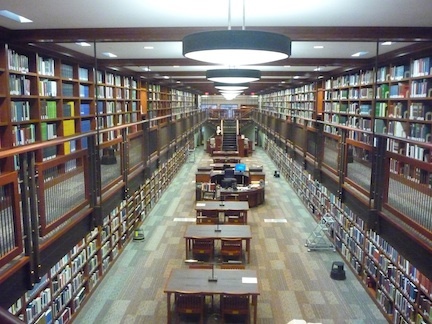SAR Genealogical Research Library
The need to establish a Library for the National Society of the Sons of the American Revolution was recognized by the National Founders, who specified provisions in the Constitution for the acquisition and preservation of Revolutionary War records, documents, and relics. The Library's development depended upon the establishment of a Washington, DC, Headquarters building in 1927. The main reading room of our library serves many researchers.
From 1889 until 1926 the Society acquired 225 books, which were kept by the Secretary General or Registrar General. On March 1, 1926, the Society established a Washington, DC, Registrar General’s office at 609 Hill Building at 17th and I Streets N.W. This office contained the "permanent records of the Society membership and genealogical records and reference library." The 1927 Congress in Richmond, Virginia, approved plans to purchase the Sixteenth Street Headquarters Building. With that came the creation of the first Library Committee, and by 1933 the collection was up to 914 books. The collection continued to grow over the next few decades.

In 1978 the SAR purchased the current Headquarters building in Louisville, Kentucky. Over the next year the second floor of the building was redesigned to accommodate a fully functional Library. It officially opened its doors to the public on January 17, 1979, and included a professional staff. In 1988 a 544-square-foot book vault was added to the floor space of the Library, and the collection had grown to approximately 25,000 items. During this time the microfiche and microfilm holdings also grew. The library at SAR Headquarters in Louisville had outgrown its space by the early years of the 21st Century, and in October 2010 moved into a renovated building on West Main Street in Louisville’s historic Museum District.
To date the library collection has grown to 58,000 items and includes family histories, state genealogy materials, federal censuses, Revolutionary War pension applications, and CD collections. The primary focal point of the collections is the Revolutionary War period, but the collection does include other materials of a genealogical nature. The online catalog allows you to see what is available.